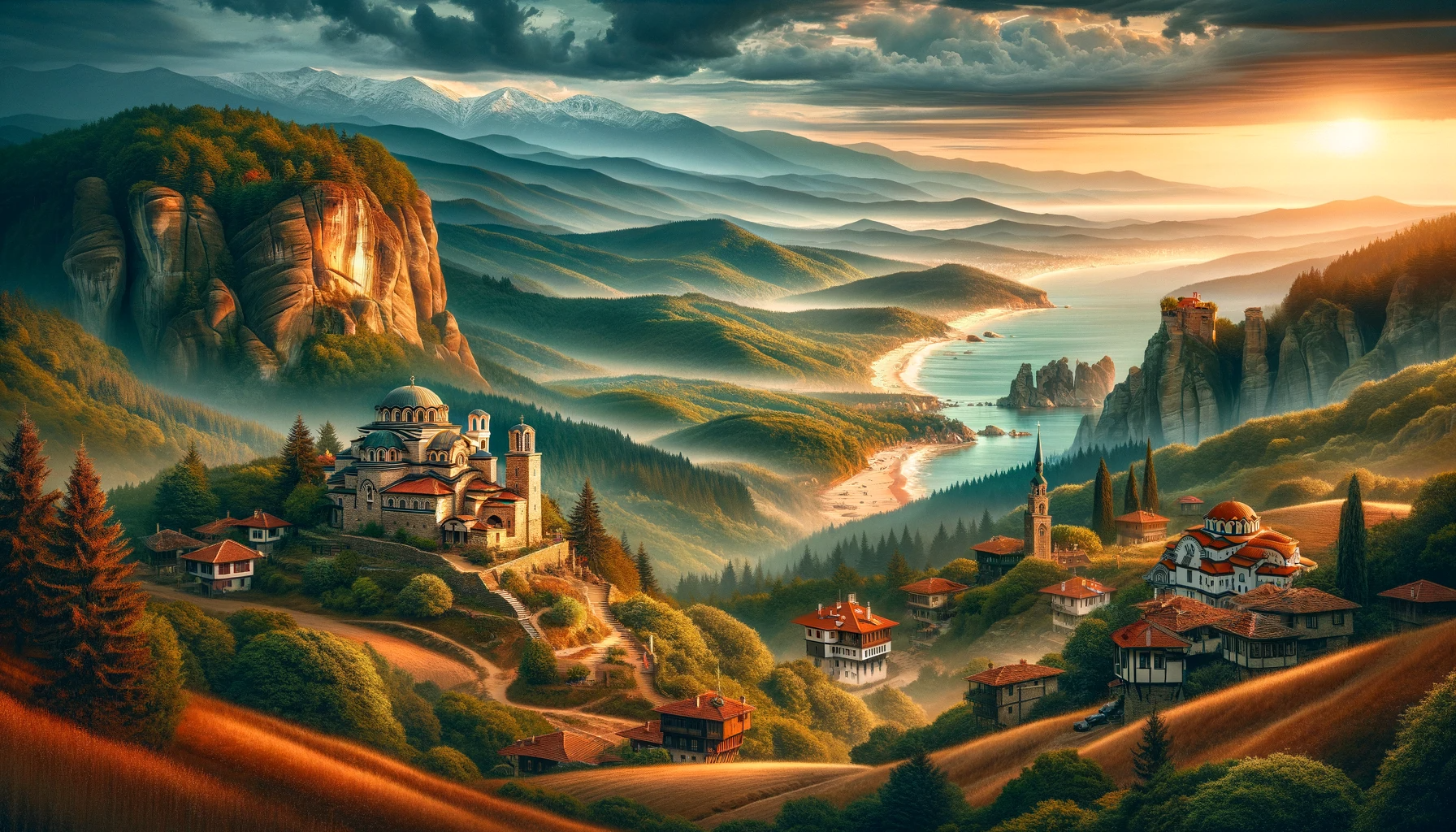Bulgaria is a country with a deep history, diverse cultural influences, and natural beauty. It continues to evolve, balancing its rich traditions with modern development and integration into European structures.
List of National and Public Holidays in Bulgaria for the year 2024
- New Year’s Day: Monday, 1 January 2024
- Liberation Day: Sunday, 3 March 2024
- Liberation Day Holiday: Monday, 4 March 2024
- Labour Day: Wednesday, 1 May 2024
- Orthodox Good Friday: Friday, 3 May 2024
- Easter Saturday (Orthodox ): Saturday, 4 May 2024
- Easter Sunday (Orthodox) : Sunday, 5 May 2024
- Orthodox Easter Monday: Monday, 6 May 2024
- Saint George’s Day / Army Day: Monday, 6 May 2024
- Culture and Literacy Day: Friday, 24 May 2024
- Unification Day: Friday, 6 September 2024
- Independence Day: Sunday, 22 September 2024
- Independence Day Holiday: Monday, 23 September 2024
- Day of the Bulgarian Enlighteners: Friday, 1 November 2024
- Christmas Eve: Tuesday, 24 December 2024
- Christmas Day: Wednesday, 25 December 2024
- 2nd Day of Christmas: Thursday, 26 December 2024

History
- Early History and Empires: Inhabited since ancient times, Bulgaria’s history is marked by its position at the crossroads of Europe and Asia, with influences from Thracians, Romans, Byzantines, and Slavs.
- First and Second Bulgarian Empires: The establishment of the First Bulgarian Empire in the 7th century, followed by the Second Bulgarian Empire, saw periods of significant power and cultural development.
- Ottoman Rule and Independence: Fell under Ottoman rule for five centuries. Gained independence in 1878, following the Russo-Turkish War.
- 20th Century to Present: Transitioned from monarchy to communist rule post-World War II. In 1989, Bulgaria shifted to a democratic government and a market-based economy. Joined the EU in 2007.
Geography
- Location and Terrain: Located in Southeast Europe, bordered by Romania, Serbia, North Macedonia, Greece, Turkey, and the Black Sea. Geography ranges from mountainous regions to fertile plains and river valleys.
- Climate: Continental climate, with hot summers and cold, snowy winters.
Culture
- Rich Cultural Heritage: Influenced by a mix of Thracian, Slavic, and Bulgar heritage. Renowned for its traditional music, dance, and crafts, including the famous Bulgarian rose oil production.
- Religion: Predominantly Eastern Orthodox Christianity, with beautiful churches and monasteries dotting the landscape.
- Cuisine: Features a variety of fresh vegetables, meats, and dairy products. Famous for dishes like banitsa, shopska salad, and Bulgarian yogurt.
Economy
- Transition and Growth: Transitioned from a state-controlled economy to a market-based economy, with significant reforms in the 1990s and 2000s.
- Key Sectors: Agriculture, energy, and tourism are significant sectors. Information technology and telecommunications are growing industries.
- EU Membership: As a member of the European Union, Bulgaria has access to broader markets and has seen improvements in infrastructure and investment.
Society
- Population: Diverse ethnic groups including ethnic Bulgarians, Turks, and Roma. Bulgarian is the official language.
- Education and Healthcare: Universal education and healthcare systems, though facing challenges such as funding and access.
- Urbanization: Major cities include Sofia (the capital), Plovdiv, Varna, and Burgas. Urban areas are hubs for economic activity and cultural life.
Environmental Initiatives
- Biodiversity and Conservation: Rich in biodiversity, with numerous national parks and protected areas. Efforts are focused on conservation and sustainable tourism.
- Challenges: Addressing environmental issues such as air and water pollution, and managing its natural resources responsibly.
Government and Politics
- Political System: A parliamentary republic with a prime minister as head of government and a president as head of state.
- Domestic and Foreign Policy: Balancing its traditional Slavic ties with its integration into Western institutions. Active in international diplomacy, particularly within the EU and NATO.
Tourism
- Historical and Natural Sites: Attractions include ancient Thracian ruins, medieval fortresses, and monasteries. The Black Sea coast is popular for its beaches and resorts.
- Cultural and Eco-Tourism: Rich in cultural festivals and traditions. Opportunities for eco-tourism and adventure travel in its mountains and rural areas.
Challenges and Future Outlook
- Economic Development: Continuing efforts to boost economic growth, attract foreign investment, and improve living standards.
- Demographic Trends: Addressing challenges related to an aging population and emigration of young people.
- Role in the Region: Navigating its role in the Balkans and broader European context, focusing on stability, economic cooperation, and cultural exchange.

